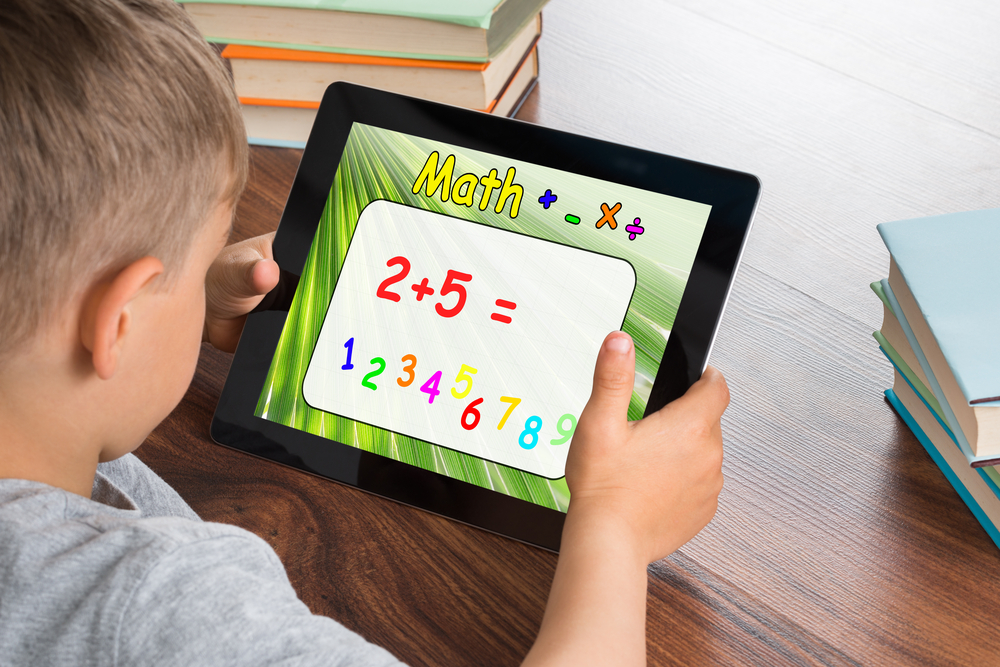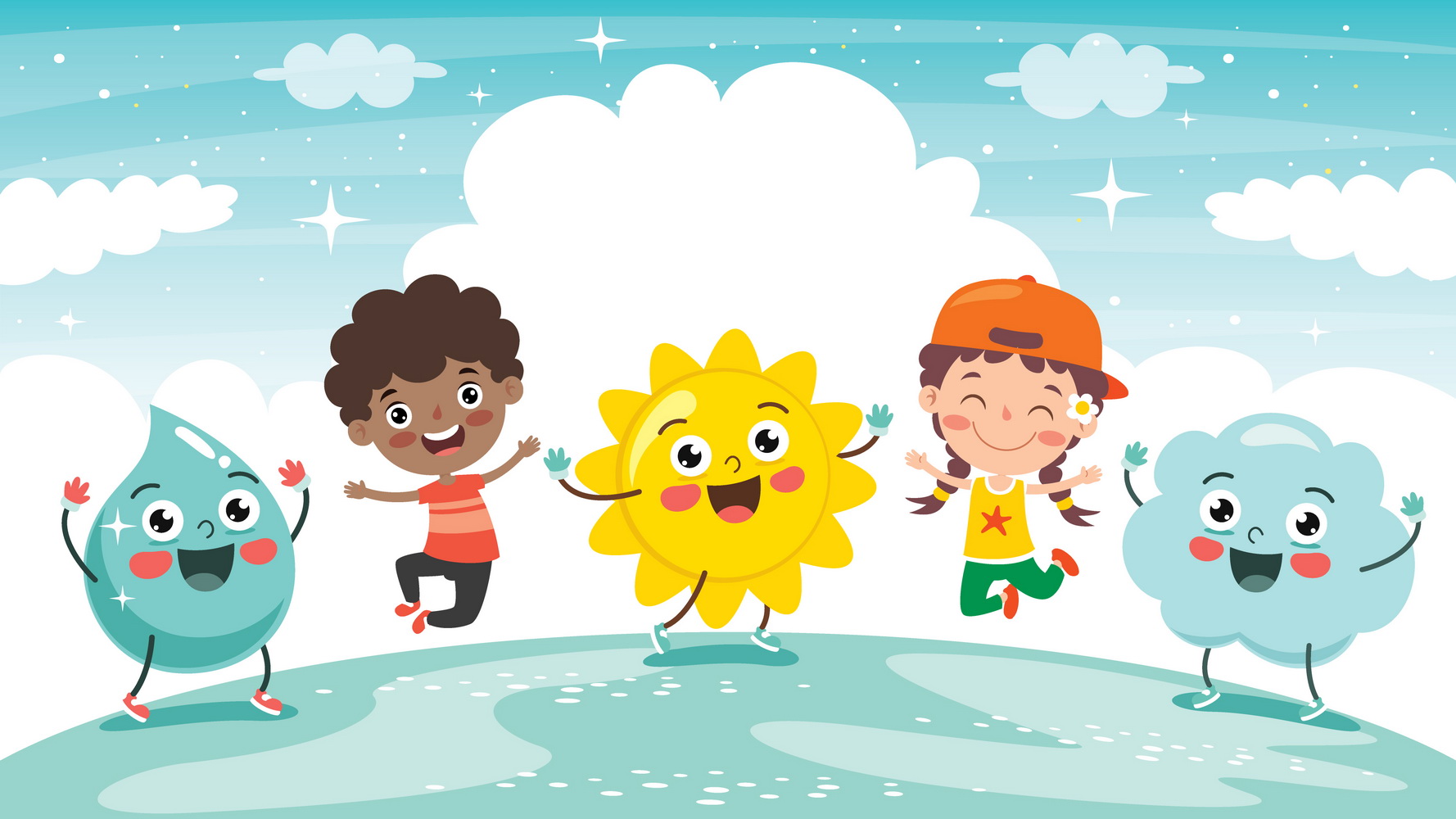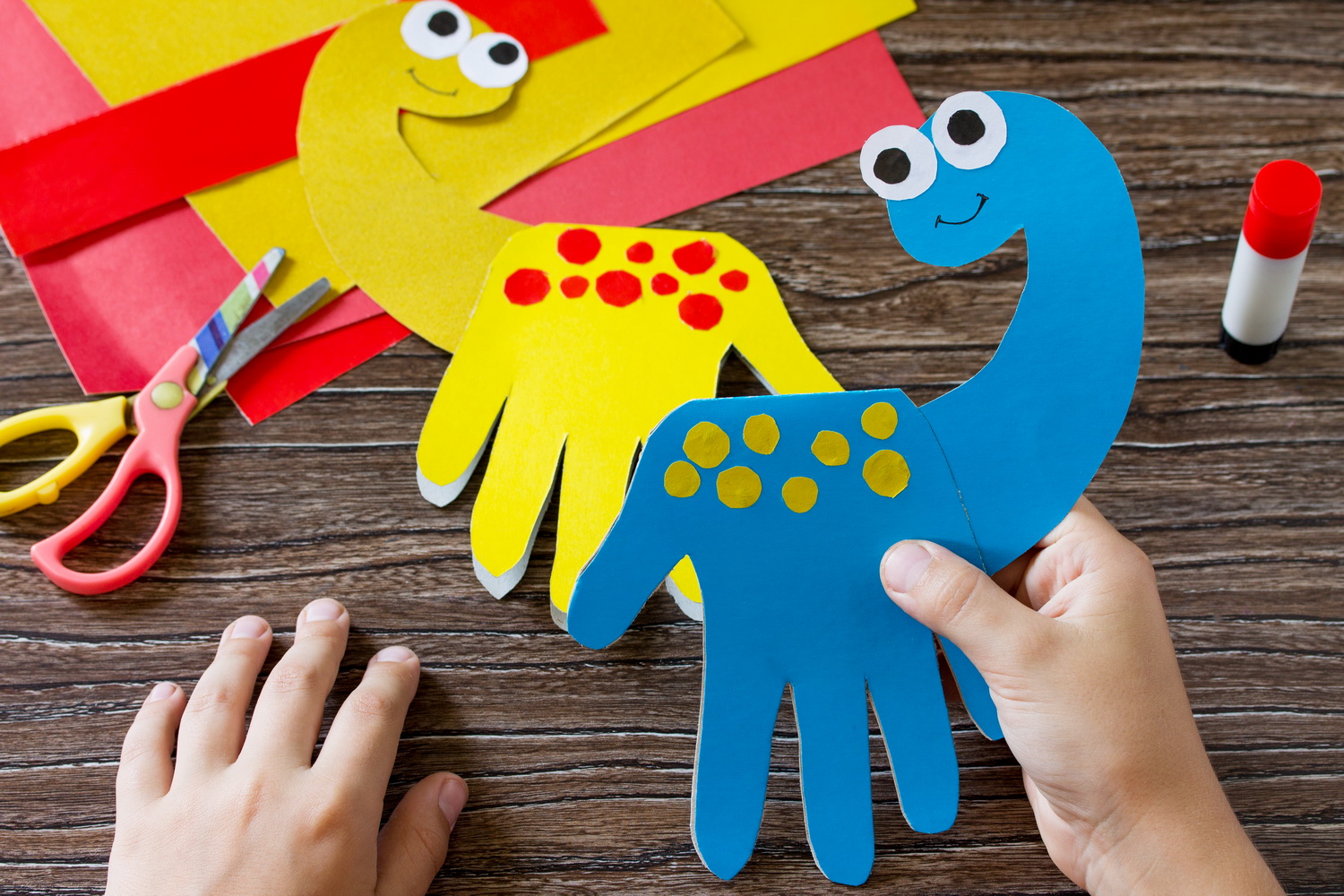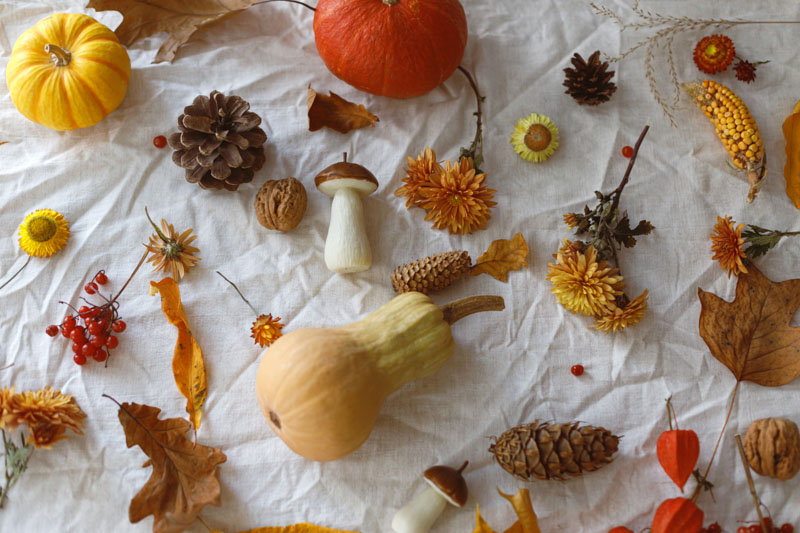Writing Benchmarks for First Graders
April 4, 2022
Watching your little ones flourish is a real joy. As supportive parents and caregivers, ensuring children develop in line with expected milestones can be a little overwhelming. This can especially be the case when monitoring a youngsters' handwriting skills because every child develops at different speeds. Therefore it can be confusing to ascertain what skills they should be exhibiting at what stage.
For children in the first grade (or Year 2/Key stage 1 in the UK) it is an important time for the development of their writing skills. Around the ages of six and seven, children are establishing consistency both within their motor skills, and this is illustrated through their writing capacities.
Physical Handwriting Benchmarks — Motor Skills
According to the Australian organisation Kid’s Sense, children of six and seven years old can write consistently on the lines, and form most numbers and letters correctly. They are also able to control pencil movements, and illustrate good endurance in their writing skills. In terms of their general motor skills at this age, children can build lego and blocks independently, as well as tie their shoelaces independently.
The impact of being at a different stage with these skills at this age, according to Kid’s Sense, is that children may find it harder to record their ideas on paper, and can feel fatigued during handwriting tasks. If they write slower than others then they may struggle to keep up in class, and their writing legibility may be less clear. These differences in development can lead to feelings of frustration and, if left unchecked, their self esteem may be impacted.
If your child is struggling with these skills at this stage it is important to reassure them, tell them that everyone develops at different stages and ask them specifically which elements they find the hardest. Working with them, and their school teachers, is the ideal way to provide the extra support they require to enhance and grow the skills they may be finding trickier.
According to the UK’s National Curriculum, children in Year 2, at age 6 and 7, will have ‘sufficiently advanced’ motor skills to write down their ideas that they can normally express orally.

As a general guide, first graders can read and write their own name, write familiar words, build simple sentences and show left-to-right writing progression, and top-to-bottom progression, whilst handling their writing tool correctly. They will have more coordination than a child younger than them, and more control and accuracy which is depicted in their writing and drawing skills. The coordination, accuracy and control six and seven years old develop at this age ripples out into mastering skills such as dancing in time to music, swimming and riding their bike without stabilisers.
Composition and Writing Styles
In the UK, children’s literacy and written development is tested in Key Stage 1 through national and teacher-led tests in reading and writing, science and maths. The National Curriculum states that children of this age will be able to compose individual sentences orally and then write them down. They will be mastering phonics and understand the way words are composed, even if they are words they have not yet learned.
They can form individual letters well and have established good mechanical handwriting skills. As writing is more difficult than reading, at this age youngsters should be able to read and comprehend more complex writing (such as vocabulary and structure) than they are able to create independently.
As their writing skills grow at this age, children’s composition abilities will increase and see them forming paragraphs by year end, with upwards of four sentences. They should also be able to write short stories.
The USA defines core competencies across literacy and writing in their Core Common Standards. In terms of composition, first graders will be able to write opinion pieces and create a rounded piece of writing that provides a ‘ sense of closure’ at the end. They can also create informative texts utilising their handwriting and composition skills, complete with facts and supporting details. As the National Curriculum denotes, children of this age will also be able to write short narratives. The Core Standards reinforces this, stating that little ones will be able to include appropriately sequenced events, and show an understanding of chronology and event order.
In terms of their grammatical and structural use of English conventions when writing, the Core Standards note that at age six and seven, children will show an understanding of standard English grammar and usage. They will do this by printing all upper and lowercase letters, using common, proper, and possessive nouns, and by using singular and plural nouns with matching verbs in basic sentences.
They can also use pronouns correctly and understand the passage of time in the near and present past and future. Adjectives, conjunctions, prepositions and article usage is also shown at this age, along with simple sentence construction. Punctuation, phonics mastering and advanced vocabulary acquisition are also illustrated at this age.
Encouraging Self Expression
With so much written development at this age, children are more equipped than ever before to express themselves through the written form. They can use their new skills to create beautiful short stories about their passions, experiences and friends and family, and can harness their written tools to showcase their feelings and thoughts.
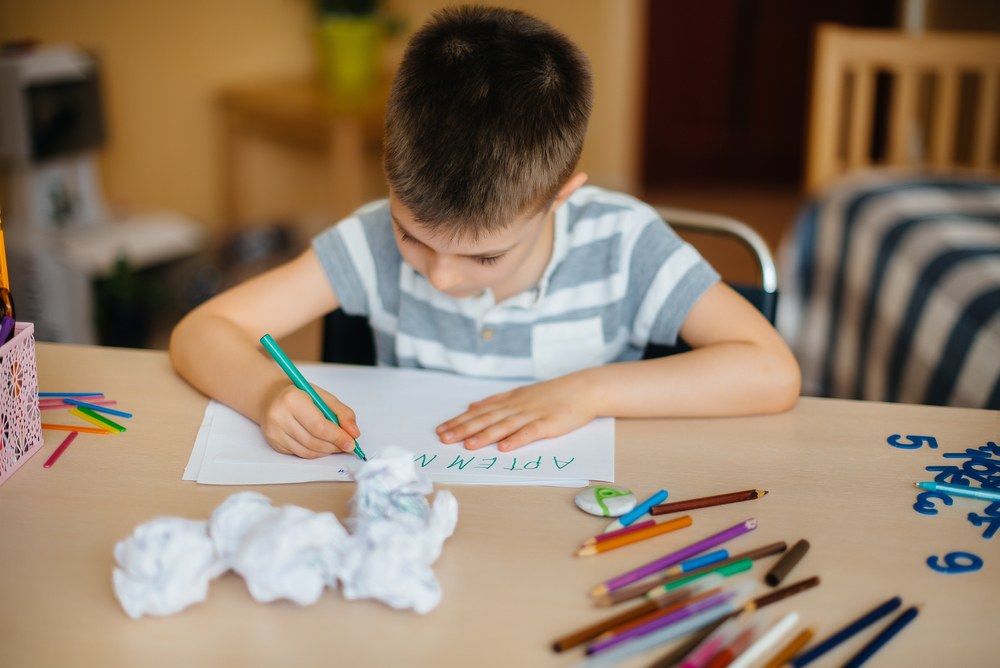
Teachers and caregivers should encourage this self expression, not just at school, but at home as well, to further develop writing skills. Not only does writing practice ensure that little ones are in line with their expected developmental milestones, it also instils a passion for creativity and self expression from an early age. This keeps little ones off the internet and ensures they are engaged in a more hands on, occupying task.
As a parent, after every exciting outing you could encourage your little one to write a short story about what they have experienced. Tell them to include lots of descriptive words and to ‘paint a picture’ with their writing. This will help them get used to telling the reader about the colours, sounds and smells of the adventure and ensure your child utilises all the grammatical, descriptive and written structures that bring writing to life. Framing it in a fun way, makes the activity less about writing conventions, which could be seen by little ones as a bit boring, and instead makes it about expressing their daily life!
When they show you their story, praise their efforts and be enthusiastic about what they have created. If there are some mistakes, try not to focus too heavily on them and instead focus more on what is great about their creation. Brief corrections can be given, however these little activities should not be about pass or fail! It is about self expression, learning and creativity!
Focusing on this means your child is more likely to want to keep writing in order to express themselves, instead of being worried they might ‘get it wrong’ if they spell something wrong!
Resources to Help Development
Utilising valuable resources to aid further development is another great way to support your child's writing benchmarks.
Kid’s Academy has a plethora of awesome academic teaching writing resources for parents that are homeschooling their youngsters, or even those who are looking for more homework in a specific writing area.
Whether it’s practising suffixes, noun usage or something else, then there is a range of lessons you can work through with your first grader to enhance their skills at this age.
Using materials can be enjoyed at play time as well as in class time, with Kid’s Academy’s word searches, animal exploration learning worksheets and introduction to different languages materials, to name a few. You can utilise these fun sheets as a visual stimulus that children can base their stories and creativity upon. For example, they could do some research about France and write about what they would like to do if they visited the country on vacation.
Use Kids Academy Classroom to assign writing activities of your choice to your children. As an example, check out this lesson on Irregularly Spelled Words for first graders. Open the lesson in Classroom.
KA Classroom is an interactive online tool that allows teachers and parents to choose from ready-made lessons or to create custom lessons using our vast Resource Library; and to conveniently share the lessons with their kids.
Go directly to the Classroom page and create any classroom you want in a couple of clicks! After students complete the lesson, you'll get access to a report about their performance.
Writing opens a whole world of opportunity for little ones and provides never-ending possibilities for self expression. Encouraging them in their creative endeavours, will not only ensure they meet their developmental writing benchmarks, but will also support them to grow into expressive, confident, creative young people.
About the author
Alison Carter - Play-Based Educator, ESL Teacher, Trauma Sensitive Yoga and Pilates Teacher.
Manchester, England, UK.
References
- https://childdevelopment.com.au/resources/child-development-charts/fine-motor-developmental-chart/
- http://www.corestandards.org/ELA-Literacy/W/1/
- https://assets.publishing.service.gov.uk/government/uploads/system/uploads/attachment_data/file/335186/PRIMARY_national_curriculum_-_English_220714.pdf
- https://www.kidsacademy.mobi/printables/grade-2/writing/grammar/grade-2-reading-words-with-suffixes-worksheet.pdf
- https://www.kidsacademy.mobi/printables/french-word-tracing-bonjour/
- https://www.kidsacademy.mobi/printables/animal-word-search/?downloadLimitPopup=true
- https://www.kidsacademy.mobi/printables/possessive-nouns/?downloadLimitPopup=true








